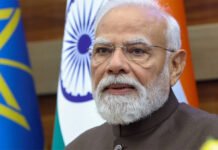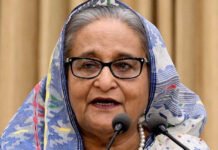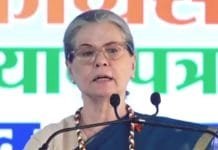INVC NEWS
New Delhi : Prime Minister Narendra Modi recently embarked on a two-day diplomatic visit to Russia. Upon arrival, he was warmly greeted by President Vladimir Putin, who embraced him with open arms. This grand welcome took place at Putin’s official residence, setting the tone for the strategic discussions that followed. The visit was marked by a series of high-level meetings aimed at strengthening bilateral relations between the two nations.
Opposition’s Response: A Critical Perspective
However, PM Modi’s visit did not escape criticism from the opposition. The Congress party, particularly through its General Secretary and Communications In-Charge, Jairam Ramesh, utilized this occasion to revisit and highlight historical diplomatic achievements. Ramesh’s comments were particularly pointed, aimed at juxtaposing Modi’s current diplomacy with the legacy of India’s first Prime Minister, Jawaharlal Nehru.
Historical Context: Nehru’s Role in Austria’s Sovereignty
Ramesh’s critique drew attention to a significant historical event – the role of Jawaharlal Nehru in the establishment of a sovereign and neutral Austria in the early 1950s. According to Ramesh, Nehru played a crucial role in the diplomatic efforts that led to Austria’s sovereignty after a decade of occupation by the victorious powers of World War II. This diplomatic achievement is celebrated on Austria’s National Day, October 26, marking the full establishment of the Republic of Austria in 1955.
Academic Endorsement of Nehru’s Diplomacy
Renowned Austrian academic, Dr. Hans Köchler, has documented Nehru’s pivotal contribution to Austria’s post-war neutrality and independence. Moreover, Bruno Kreisky, the Austrian Chancellor from 1970 to 1983, was one of Nehru’s staunch global admirers. Kreisky’s reflection on Nehru in 1989 emphasizes Nehru’s lasting impact on international diplomacy, highlighting him as one of the century’s most influential figures.
Jairam Ramesh’s Remarks: A Deep Dive
In a statement reflecting on Modi’s visit, Jairam Ramesh remarked that those who are afflicted by “Nehruphobia” should acknowledge Nehru’s unparalleled contributions to global peace and diplomacy. Ramesh’s comments were aimed at reminding the current administration of the historical foundations laid by Nehru, which continue to shape India’s foreign policy.
Nehru’s Legacy vs. Modi’s Diplomacy
Ramesh’s criticism goes beyond mere political rhetoric; it underscores a deeper narrative about the ideological and diplomatic shifts in India’s foreign policy from Nehru’s era to Modi’s administration. He suggests that the current leadership often neglects or undermines the foundational diplomatic principles established by Nehru, which were instrumental in positioning India as a key player on the global stage.
The Broader Implications of Modi’s Visit
Strategic Partnerships and Global Positioning
PM Modi’s visit to Russia is part of a broader strategy to strengthen India’s position in global geopolitics. With Russia being a longstanding ally, this visit signifies the continuing partnership and strategic alignment between the two nations. The discussions during this visit are expected to cover a wide range of topics, including defense cooperation, energy security, and technological collaboration.
Energy Security and Defense Cooperation
Russia is a crucial partner in India’s energy security strategy. The collaboration on nuclear energy and the supply of hydrocarbons are vital for India’s growing energy needs. Moreover, defense cooperation, particularly in the areas of military technology transfer and joint defense projects, remains a cornerstone of the Indo-Russian relationship.
Technological Collaboration and Economic Ties
Another significant aspect of Modi’s visit is the focus on enhancing technological collaboration. This includes partnerships in space technology, cybersecurity, and advanced manufacturing. Strengthening economic ties through increased trade and investment opportunities is also a key agenda of the visit.
The Opposition’s Concerns
Legacy and Recognition
The opposition’s critique, particularly by Jairam Ramesh, highlights a concern about the recognition and preservation of India’s diplomatic legacy. Ramesh’s remarks suggest that the current administration should not only focus on contemporary diplomatic achievements but also honor and build upon the historical contributions of leaders like Nehru.
Diplomatic Continuity and Ideological Shifts
The ideological shift from Nehru’s inclusive and non-aligned diplomatic stance to Modi’s assertive and sometimes polarizing approach is a point of contention. The opposition argues for a balanced approach that respects historical precedents while addressing contemporary challenges.
















